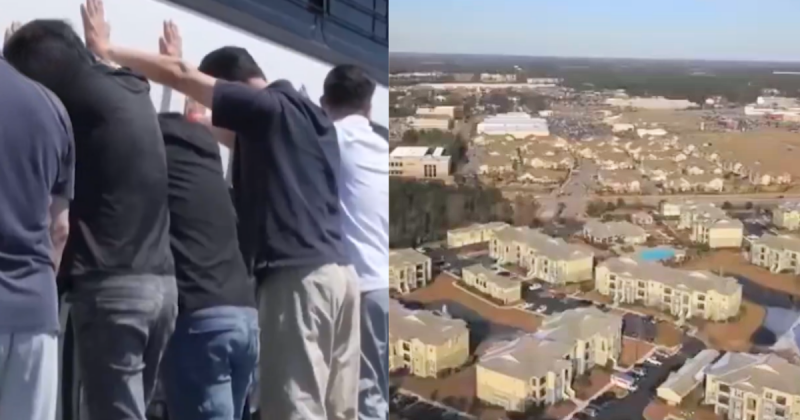A federal immigration enforcement sweep at a Hyundai manufacturing facility in Pooler, Georgia, revealed that hundreds of South Korean workers were employed in violation of U.S. immigration laws.
Many were classified as illegal aliens, sparking concerns over local job opportunities and the rapid growth of the South Korean community in the area.
Census estimates show that Pooler’s population rose roughly 22 percent between 2020 and 2024, reaching about 31,000 residents.
Local leaders estimate that nearly half of this increase is attributable to the influx of South Koreans, many of whom were employed at the Hyundai plant. The demographic shift has reshaped the town’s cultural and economic landscape, according to the Wall Street Journal.
Once home to a single Korean restaurant, Pooler now boasts multiple Korean eateries.
Retailers like Costco have expanded offerings to include kimchi, mandu dumplings and dried seaweed, while new housing developments such as Blue Moon Crossing and Harvest Hill have attracted Korean families.
Residents say the factory jobs were a key factor drawing families to the area.
Union representatives say the plant sweep has affected American workers.
Barry Zeigler, business manager for Local Union 188—which represents plumbers, welders, pipe-fitters and HVAC technicians—said local union members were temporarily employed at the factory before being replaced by South Korean workers.
“Our members performed their duties safely and efficiently, only to be replaced by workers here illegally,” Zeigler said. “It felt like a real setback for the community.”
The situation has also created tension within Pooler’s South Korean population, BizPac Review reports.
Legal residents expressed frustration that illegal workers could prompt unfair scrutiny of the broader community.
Robin Kim, a local resident, noted, “Everything was going smoothly, but now there’s a risk of assumptions being made about all South Koreans, even those here legally.”
Questions about government incentives have emerged alongside the enforcement action.
Hyundai received $2 million in tax breaks as part of a $5.5 billion manufacturing agreement brokered by Georgia Gov. Brian Kemp (R) in 2022, intended to boost employment in the Savannah region.
Critics argue that the deal did not provide promised benefits for American workers.
Republican congressional candidate Tori Branum criticized the arrangement, saying, “Tax incentives were meant to create jobs for Georgians, but too many ended up going to foreign workers instead.”
The South Korean government announced that most of the illegal workers will be repatriated.
While enforcement addresses legal compliance, residents and local leaders are grappling with the longer-term effects on employment, housing and community dynamics.
Experts note that the incident illustrates how immigration enforcement, corporate incentives and demographic shifts can intersect in rapidly growing regions.
Pooler’s experience highlights the challenges of balancing workforce needs, legal compliance and community cohesion, particularly when foreign corporations and international labor movements play a central role in local economies.
The Hyundai plant sweep has become a focal point in the ongoing discussion about immigration policy, labor rights and the role of government incentives in attracting international businesses.
While legal action resolves immediate violations, the cultural and economic impact on Pooler will continue to be felt for years to come.

